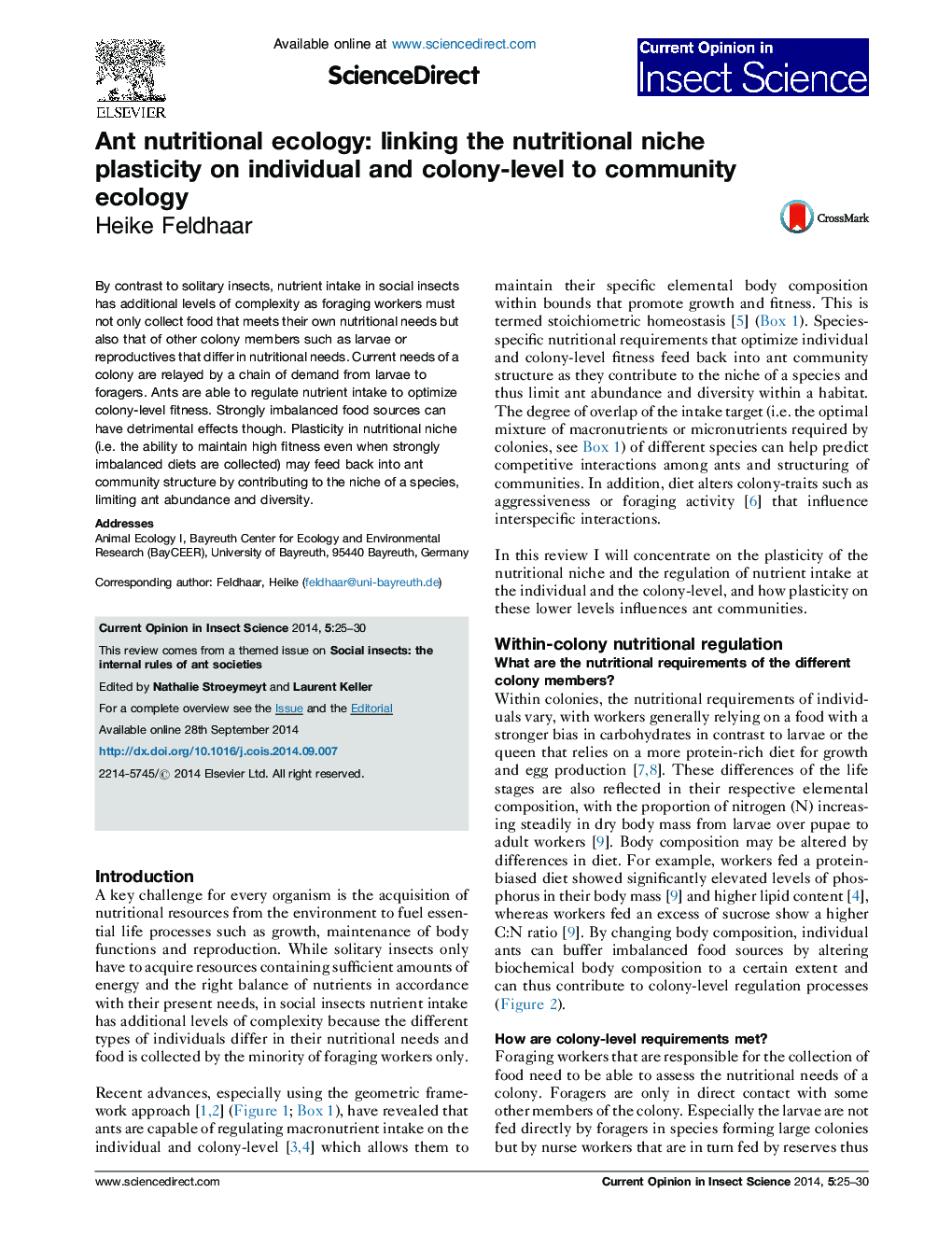| Article ID | Journal | Published Year | Pages | File Type |
|---|---|---|---|---|
| 6374184 | Current Opinion in Insect Science | 2014 | 6 Pages |
Abstract
By contrast to solitary insects, nutrient intake in social insects has additional levels of complexity as foraging workers must not only collect food that meets their own nutritional needs but also that of other colony members such as larvae or reproductives that differ in nutritional needs. Current needs of a colony are relayed by a chain of demand from larvae to foragers. Ants are able to regulate nutrient intake to optimize colony-level fitness. Strongly imbalanced food sources can have detrimental effects though. Plasticity in nutritional niche (i.e. the ability to maintain high fitness even when strongly imbalanced diets are collected) may feed back into ant community structure by contributing to the niche of a species, limiting ant abundance and diversity.
Related Topics
Life Sciences
Agricultural and Biological Sciences
Agronomy and Crop Science
Authors
Heike Feldhaar,
